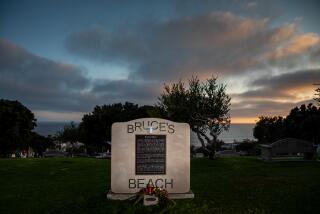LETTERS
- Share via
H. Jane Lehman’s “This Land Is My Land” appears to imply that advocates for private property rights are a new phenomenon in America, a radical departure from established traditions of pervasive public control. Such a view has the matter exactly backward.
The legal, and moral, concept of private ownership of property was central in the days of America’s founding. The prevailing view was that human beings had the right to acquire property by honest means and that government’s primary role was to protect the owners’ rights to use property without interference by others.
The Fifth Amendment to the U.S. Constitution states, in part, “nor shall private property be taken for public use, without just compensation.” Traditionally, “public use” meant such projects as government buildings or roads. For example, if the government needs your property to build a courthouse, it must pay you fair market value.
But, during the 20th Century, federal and state legislatures, with the concurrence of the highest court, have expanded the public use concept to mean anything they, or the special interests that influence them, feel like doing. And of course, they don’t want to pay for it. So, they claim they are not “taking” the property, they are only “regulating” its use. But, just as the power to tax is the power to destroy, so is the power to regulate.
Today’s environmentalists, historic preservationists and their ilk simply want to take valuable property rights of other people, all for the public good, of course, and they want those other people to bear the entire cost. That is wrong.
The fair, just and constitutional way of accomplishing valid projects for the public good is to have the public pay for them. That is often done with tax dollars.
The better way is for organizations such as the National Trust for Historic Preservation to purchase the subject buildings with funds raised voluntarily. Then they, as owners themselves, might learn to respect the rights of other owners and begin to understand the importance of protecting private property as a social institution.
DAVID P. BERGLAND
Irvine
The writer is an adjunct professor of law at Western State University College of Law, Irvine
More to Read
Sign up for Essential California
The most important California stories and recommendations in your inbox every morning.
You may occasionally receive promotional content from the Los Angeles Times.













